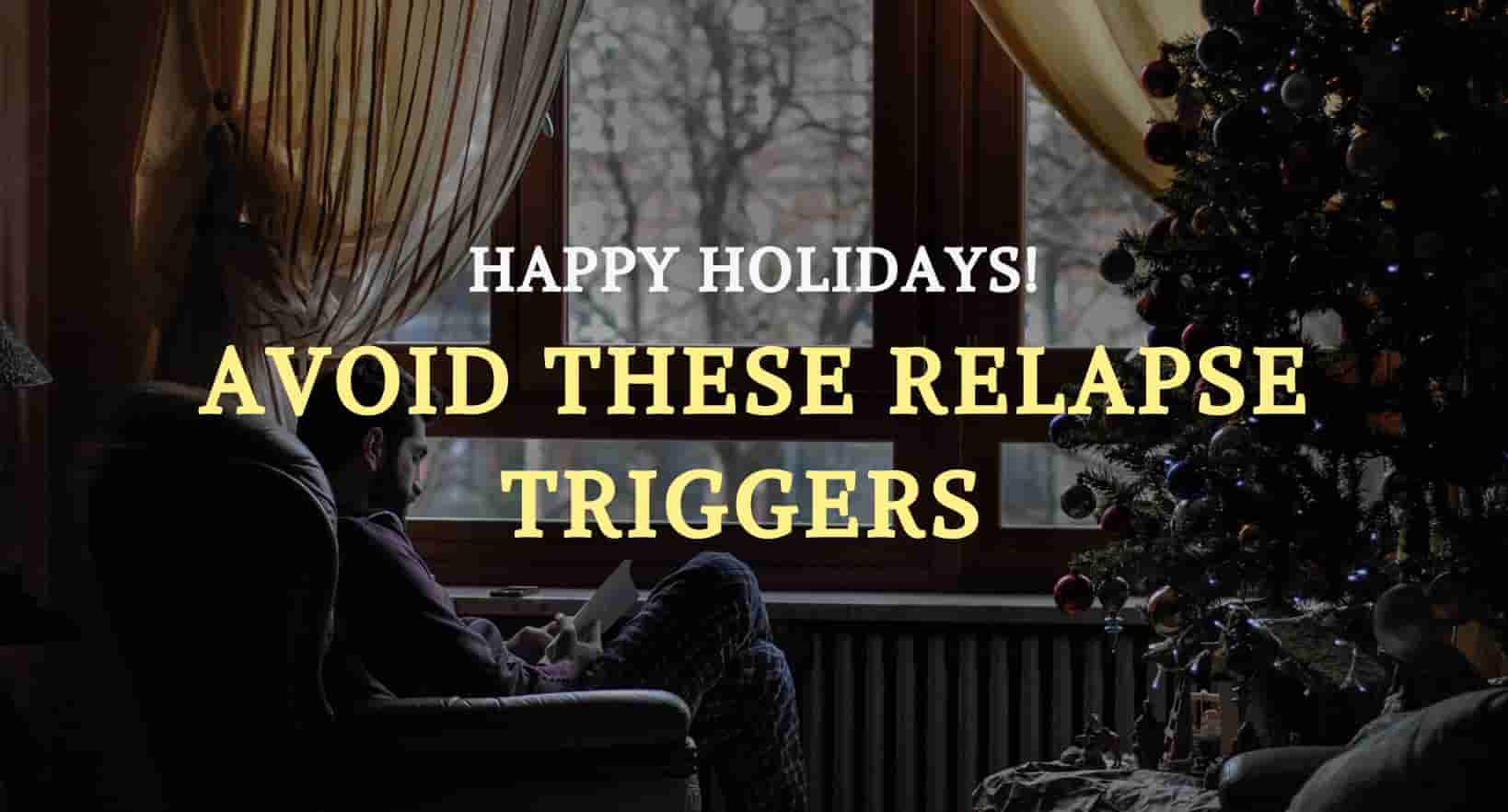
For many people, the holiday season is a joyful and exciting time.
However, for people coping with addiction, it can be a deeply challenging time with an increased risk of relapse. For those in recovery, particularly in the early stages of the process, coping methods may be tested. We spoke with one of our clinical therapists about why the holiday season can be so difficult for those in recovery. The issues discussed here are all worth considering and preparing for if you or a loved one is coping with addiction. Our next blog will go into further detail on methods for dealing with recovery challenges over the holiday season.
Celebrations
The kind of celebrations that are so frequent during the holiday season may involve many relapse triggers. These events often revolve around alcohol, and at some, other substances may be present. There may be others present who enable addictive behaviour or who you strongly associate with substance use. The pressure to embrace these occasions and to feel joyful can also be alienating for people who do not naturally feel this way.
A person in recovery may also resent seeing others engage in the kind of behaviour they are working to avoid. It may be better to avoid certain events altogether if you anticipate that they will be triggering. For those you do attend, it is important to prepare yourself to manage any cravings you experience. Resolve to reject any enabling behaviour from those around you. Remind yourself that cravings are temporary and that each time you resist them, you have made real progress.
Family Situations
Over the holidays, many people return home to complicated family situations. This may cause feelings of sadness, stress, anger or guilt. These feelings can be particularly distressing for people in recovery and may be relapse triggers. People who have not disclosed to their families that they are in recovery may also experience tension or anxiety as a result of this. Some families may be judgmental or critical of a person’s addiction problems or dismissive of their recovery efforts. It is important to emotionally and mentally prepare for this and to think of healthy coping methods for dealing with any difficulties caused by family issues.
Exhaustion
The exhausting nature of the holiday season can be challenging for people in recovery. A busy schedule of events and preparations can leave you worn down, apathetic or depressed. This can make it difficult not to turn to substances for relief. It’s very important to focus on maintaining physical and mental health over the holiday season by setting aside enough time to rest and relax, eating as healthily as possible and exercising.
Separation From Supports
People in recovery who are traveling home for the holidays may be separated from familiar supports. Any interruption of routine can be difficult, but the interruption of recovery practices can be particularly problematic. For example, people who attend meetings, support groups or counselling sessions may be unable to do so over the holidays. Being separated from friends or partners who are supportive of recovery can also make people more vulnerable to relapse. It is important to find alternative supports or to keep in touch with people who support your recovery throughout the holiday season.
Financial Pressure
The financial pressures of the holiday season can also be difficult to manage. Between travelling, buying gifts and attending events, the festive period can put significant strain on one’s finances. This can in turn create or exacerbate issues with anxiety or, for people who cannot afford the many expenses, feelings of inadequacy. Being unable to travel home or to attend certain events because of the expense can also be very isolating. It can cause feelings of resentment, which may lead someone in recovery back into substance use.
Hiding Addiction Problems
For people who have not told their families, friends or colleagues that they are in recovery, holiday celebrations can be very difficult to navigate. The constant presence of alcohol may make it conspicuous that you are not drinking or may at least make you feel that way. This can be very unnerving and may lead to stress and cravings. You may also have to continually explain why you are not drinking, which can be distressing. Having a response to these questions prepared will help you get through these events.
Enabling Family and Friends
Some families or social groups may be enabling of addictive behaviour or dismissive of addiction problems. Family members or friends may encourage you to drink or use drugs even if they are aware that you are in recovery. Some people may even pressure you to use substances. It is important to avoid enabling interactions when possible and to have a response prepared if they do occur.
Triggering Associations
For many people in recovery, visiting home brings them into contact with many people, places, memories and feelings that they associate with substance use. This can be distressing and can cause intense cravings. Visiting home may also cause painful memories to resurface. Many addicted people use alcohol or drugs as a way of repressing or coping with these kinds of memories. This reaction then becomes reflexive. Identifying and developing methods for dealing with these sorts of stressors in a way that does not jeopardize your sobriety is an important aspect of recovery. Before returning home, it is useful to consider these methods and to think clearly about how you will react to any cravings brought on by your return.
Concurrent Disorders
For people dealing with concurrent disorders such as anxiety, depression or PTSD, the stressful and hectic nature of the holiday season may exacerbate their symptoms. This is particularly true for people whose conditions are rooted in experiences related to their home or home lives. It is particularly important to manage physical and mental health carefully and to take any medications precisely as prescribed during this time to manage the symptoms of mental health disorders. It is also important to maintain any regular supports such as therapy or support groups. If you cannot maintain these supports, you should find substitutes for them.
Feelings of Alienation
People with complicated or hostile family situations, or people who do not have families, may find the family focus of the season alienating or triggering. Feelings of resentment, anger or depression are common relapse triggers. If you feel that the family focus of the holiday season may be triggering to you, it is important to discuss this with those who are supportive of your recovery. It may be possible to develop a strategy for coping with any distressing emotions or incidents during this time. Openly discussing concerns can also make them more manageable.
Holiday celebrations can also be alienating for people who do not celebrate them for personal or cultural reasons. The focus on certain holidays can feel overwhelming during the festive season. This can make people feel isolated or marginalized by those around them. This can lead to feelings of resentment, loneliness or depression which may in turn serve as relapse triggers. For people coping with addiction, it is important to spend time with people who make you feel supported over the holidays.
If you are concerned about your own or a loved one’s addiction problems this holiday season, contact Trafalgar Addiction Treatment Centres for more information on addiction treatment programs in Ontario and recovery.
Our next blog will offer more advice and suggestions on methods for coping with addiction over the holiday season.





